One of the untold languages of our business during triple bidding is when the response to your bid is requesting you to increase a particular line item usually means you are not the first choice. Ouch. I know it’s not easy, but it is best to know where you stand and what you are probably dealing with.
Bidding Process
Be Prepared To Discuss Your Costs With Your Client
When bidding on a job, clients may ask us to dive deeper into the basis of the costs. Put your business mind to work by understanding what the client needs to hear from you.
Our estimates cover us for unexpected real-life additions like grip truck availability, insurance changes, crew covid testing results, overtime, etc.
Our bids are not as black and white as clients would assume, so get ready to explain the gray areas in ways that speak their language.
Charging for Interior Shoots
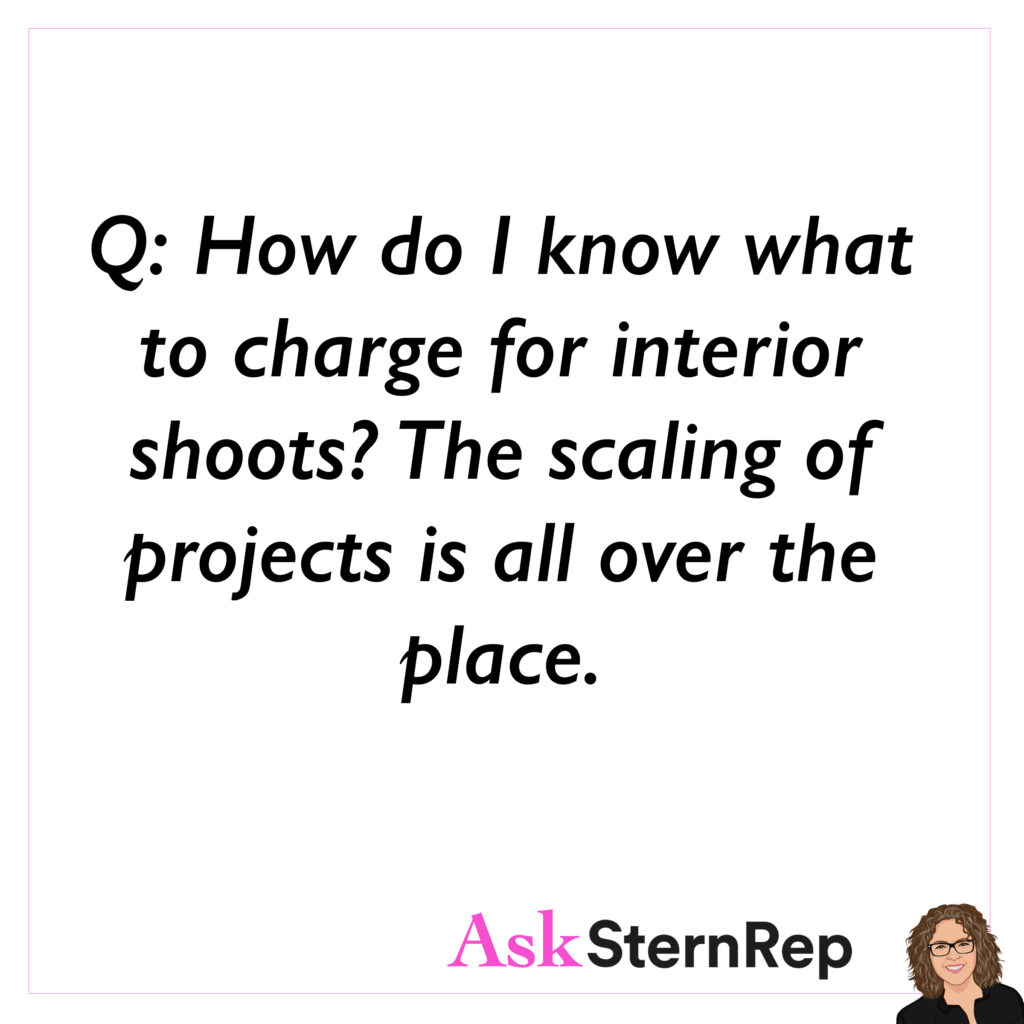
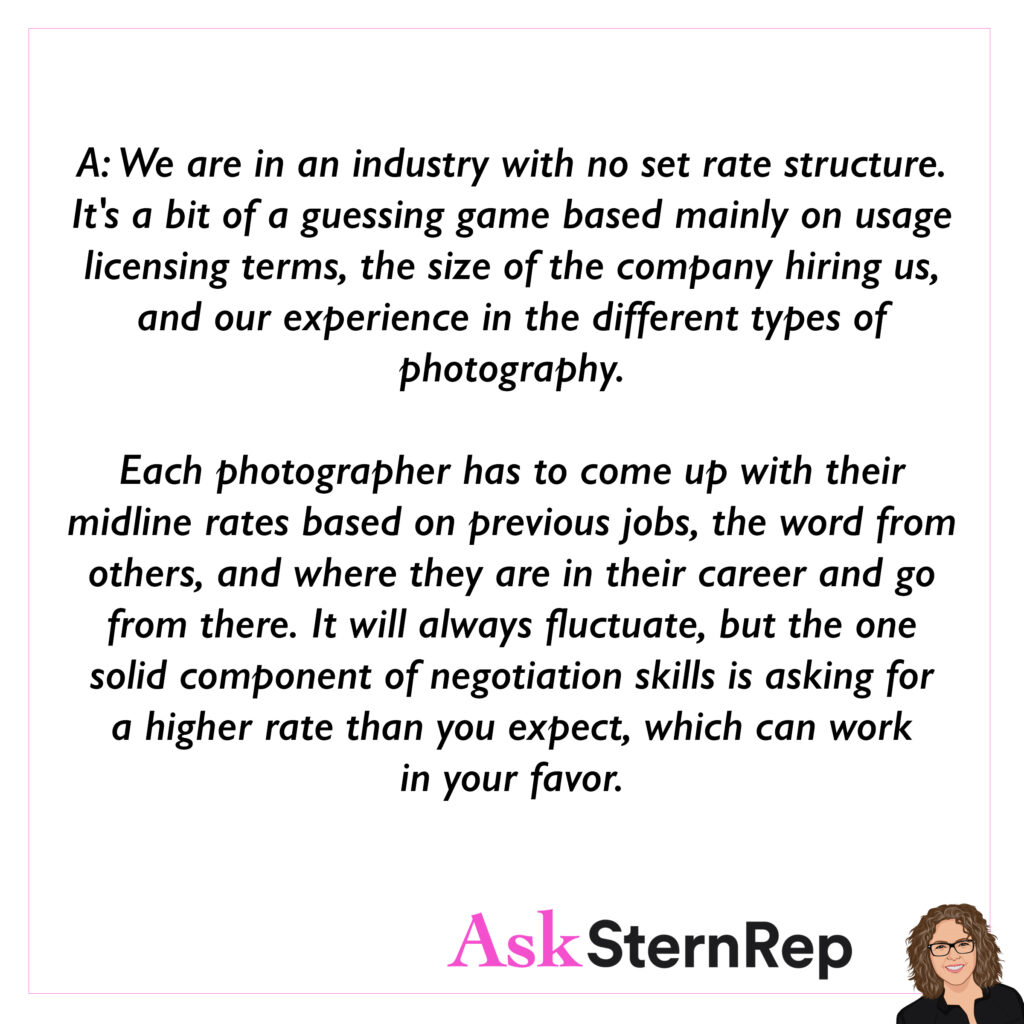
Q:
How do I know what to charge for interior shoots? The scaling of projects is all over the place.
A:
We are in an industry with no set rate structure. It’s a bit of a guessing game based mainly on usage licensing terms, the size of the company hiring us, and our experience in the different types of photography.
Each photographer has to come up with their midline rates based on previous jobs, the word from others, and where they are in their career and go from there. It will always fluctuate, but the one solid component of negotiation skills is asking for a higher rate than you expect, which can work in your favor.
The Importance of a One-Sheet Attachment Promo in an Email
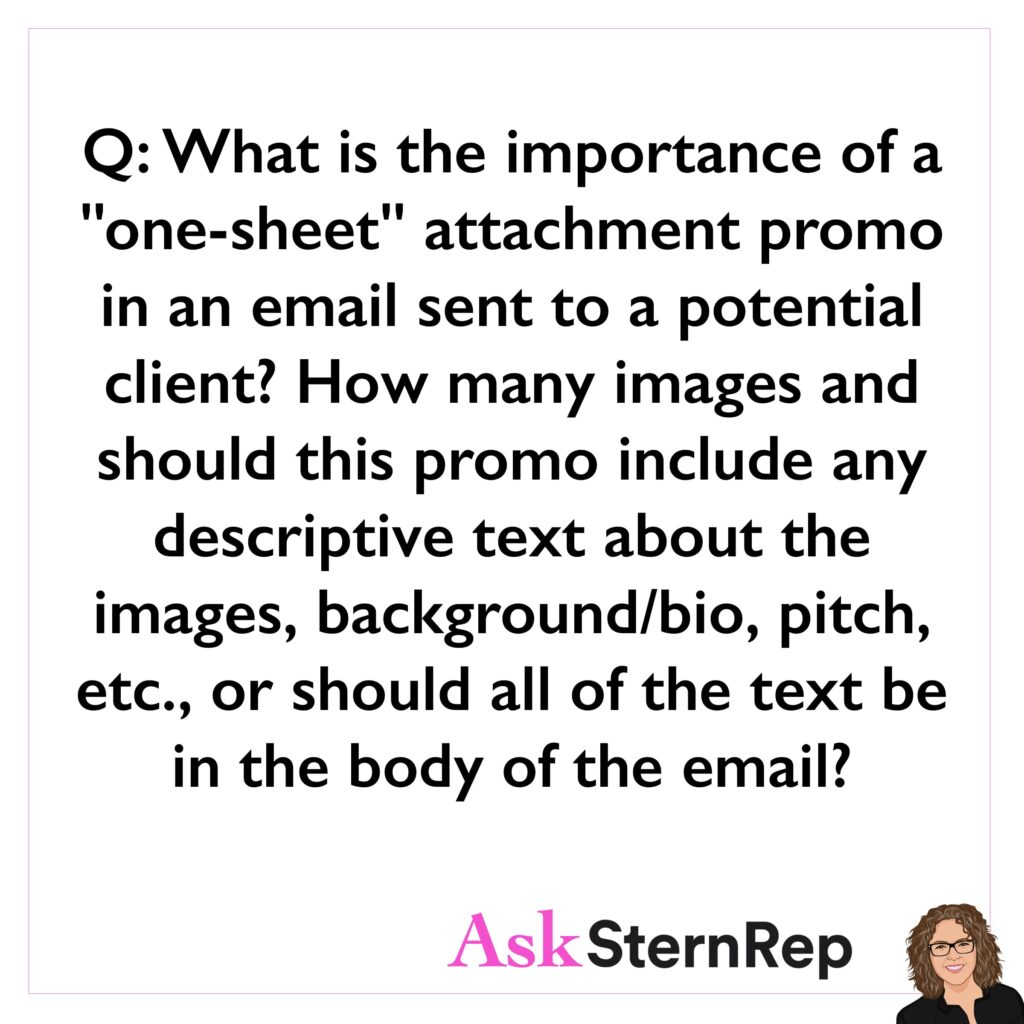
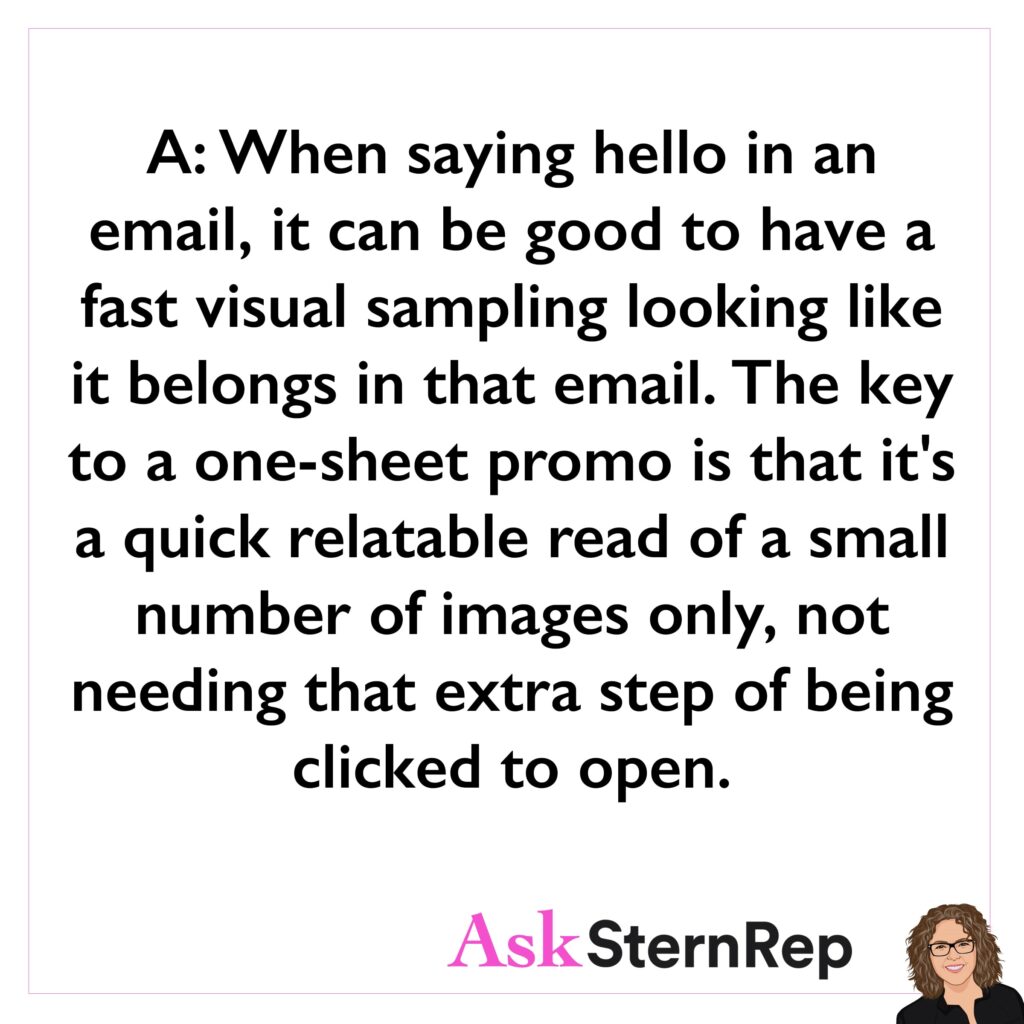
Q:
What is the importance of a “one-sheet” attachment promo in an email sent to a potential client? How many images and should this promo include any descriptive text about the images, background/bio, pitch, etc., or should all of the text be in the body of the email?
A:
When saying hello in an email, it can be good to have a fast visual sampling looking like it belongs in that email. The key to a one-sheet promo is that it’s a quick relatable read of a small number of images only, not needing that extra step of being clicked to open.
Are Elaborate Promos Worth The Money?
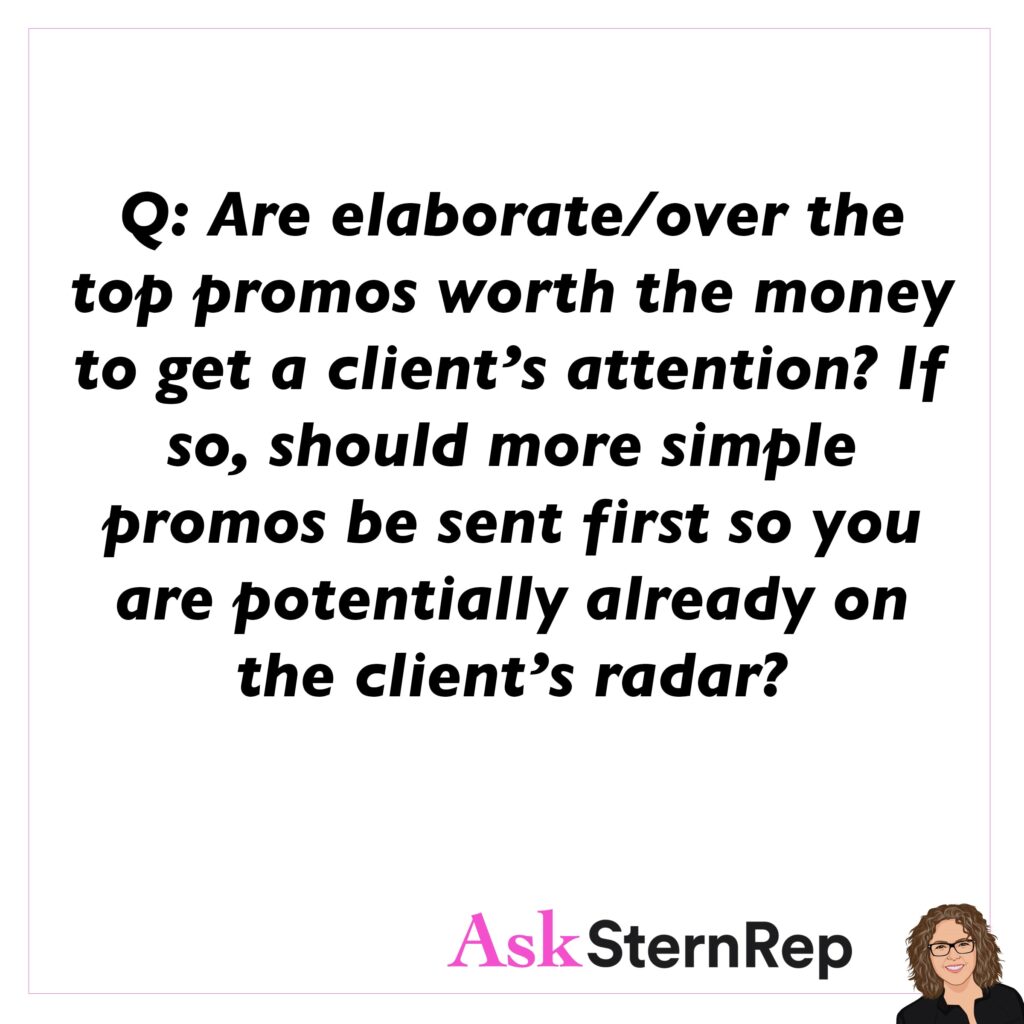
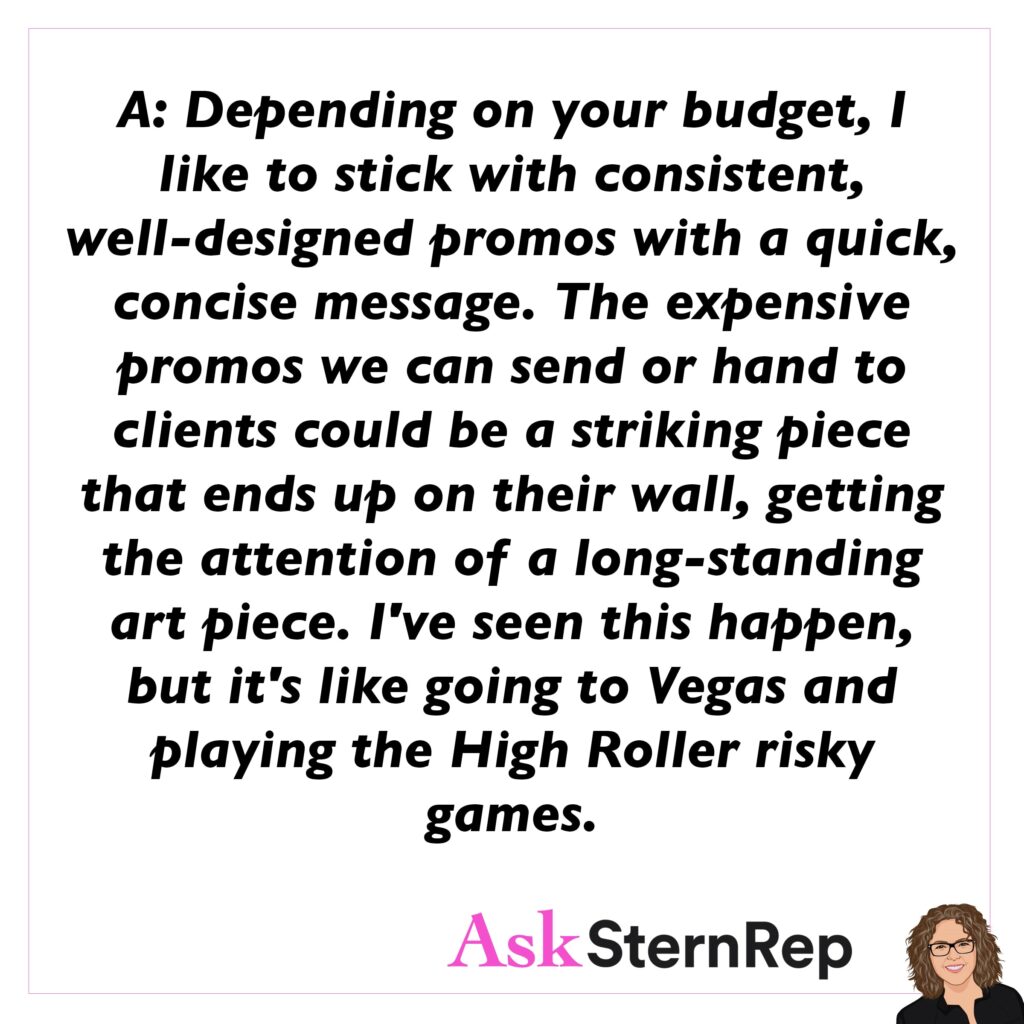
Q:
Are elaborate/over the top promos worth the money to get a client’s attention? If so, should more simple promos be sent first so you are potentially already on the client’s radar?
A:
Depending on your budget, I like to stick with consistent, well-designed promos with a quick, concise message. The expensive promos we can send or hand to clients could be a striking piece that ends up on their wall, getting the attention of a long-standing art piece. I’ve seen this happen, but it’s like going to Vegas and playing the High Roller risky games.
Email Promo Clicked Lists


Q:
What do we do with our email promo “clicked” lists?
A:
To know who CLICKS from our email promo to our website supplies valuable feedback shaping our marketing direction. Analyzing this relevant resource can be what you need to know.
- Put them on a hotlist and use every method to follow up with them, including following and engaging on IG.
- Look up all the others at that agency or company on Agency Access, yodelist, and LinkedIn to get them on your lists. If your work is applicable for one person at that place, I will put money down that the same is true for the others.
- If one of your top dream list clients didn’t have any clocks, you know you have some changes to make.
- Compare the marketplace segments clicking percentages to see which category of clients your work is attracting vs. which types are not being drawn in.
- When you get an unusual amount of clients or lack of clicks from one email, use that to analyze what was different, like your subject line, the time or the day of the week, wording changes or design.
Do You Always Expect Clients To Negotiate?
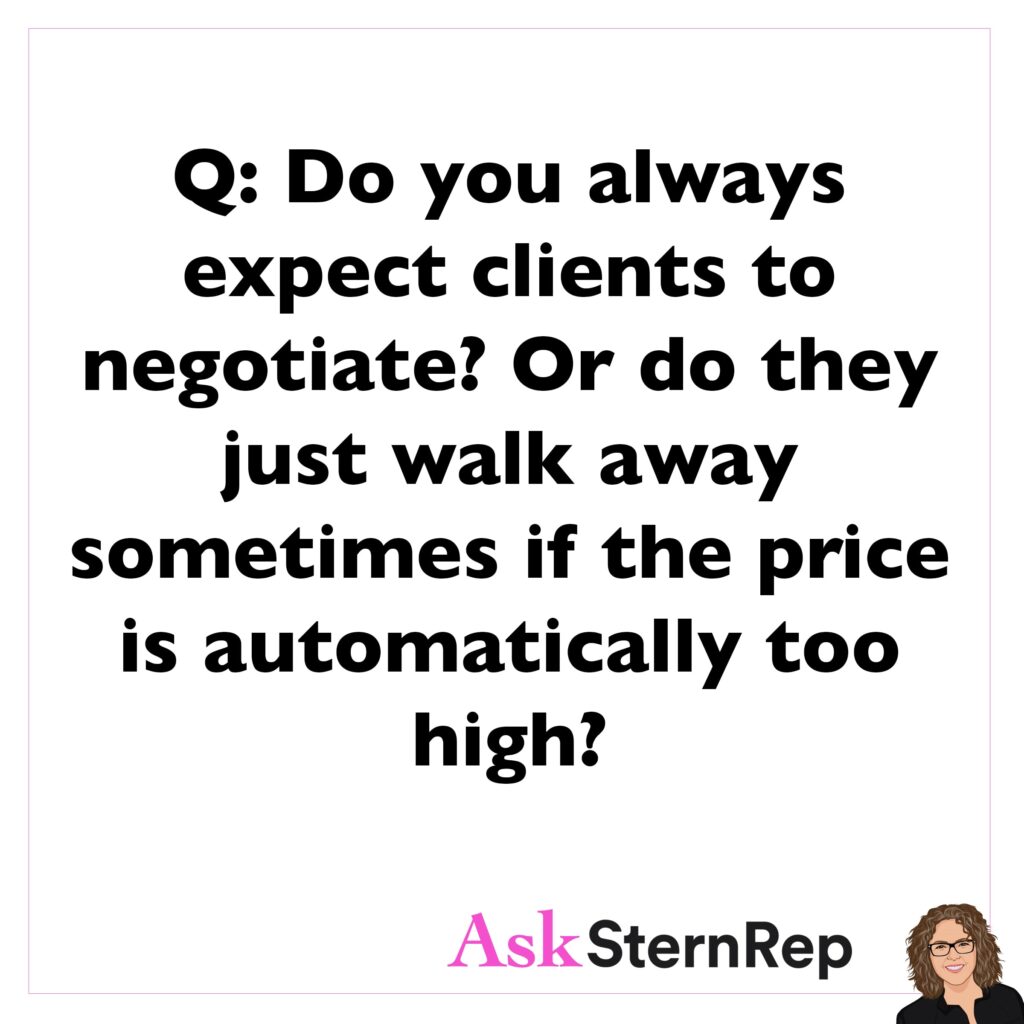
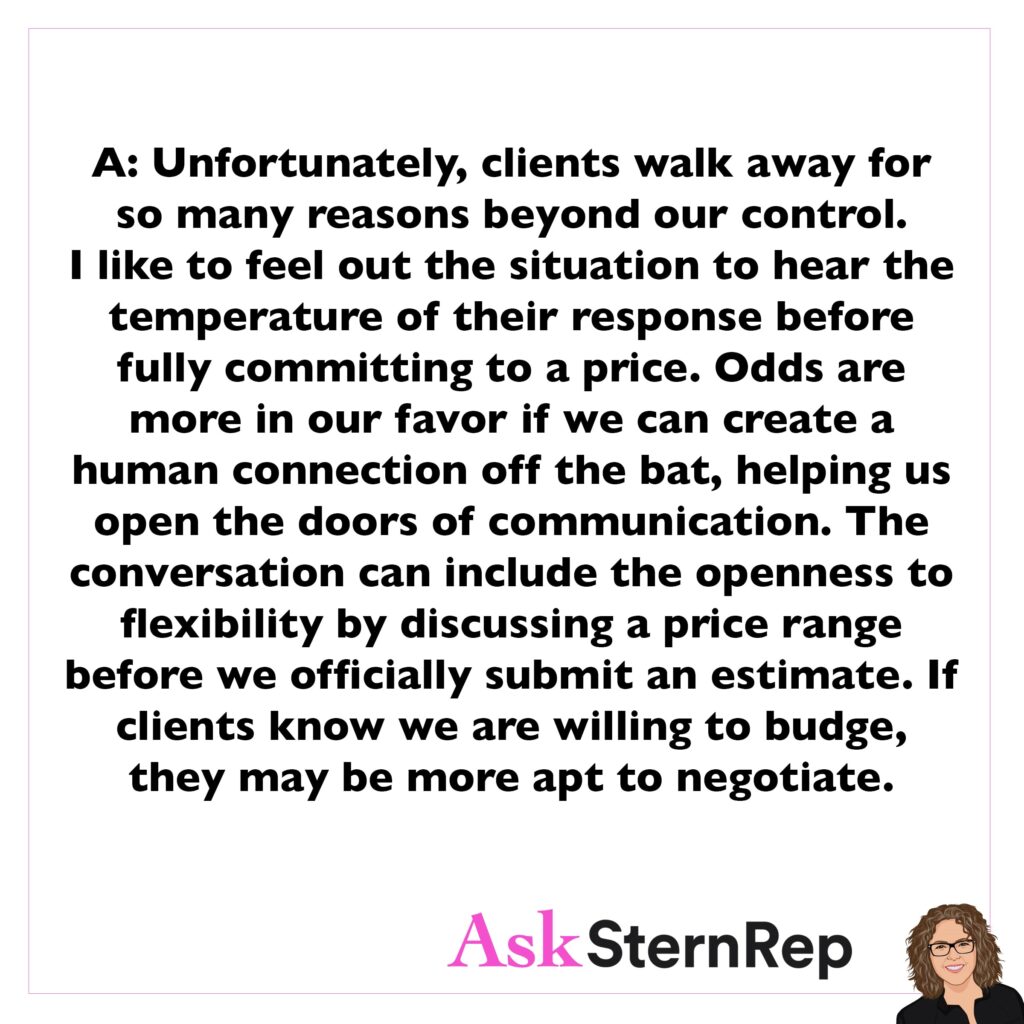
Q:
How do I leverage this abundance of accolades and high end client work to get more exposure? My past mailers and hand curated Do you always expect clients to negotiate? Or do they just walk away sometimes if the price is automatically too high?
A:
Unfortunately, clients walk away for so many reasons beyond our control. I like to feel out the situation to hear the temperature of their response before fully committing to a price. Odds are more in our favor if we can create a human connection off the bat, helping us open the doors of communication. The conversation can include the openness to flexibility by discussing a price range before we officially submit an estimate. If clients know we are willing to bridge, they may be more apt to negotiate.
Bid Prep Step One
BID PREP STEP ONE:
Being ready to go with a solid inventory of crew + producers based on different bidding scenarios and locations can help you (me) avoid the regretful danger zone of losing a job we didn’t need to lose. Be ready to reach out without relying on only a few contacts because it could be too late by the time we hear back. Some jobs are pressure-cookers where the fastest one wins! Building a comprehensive crew and producer list has to happen way before the bid requests come in.
Leverage Client Accolades To Get More Exposure
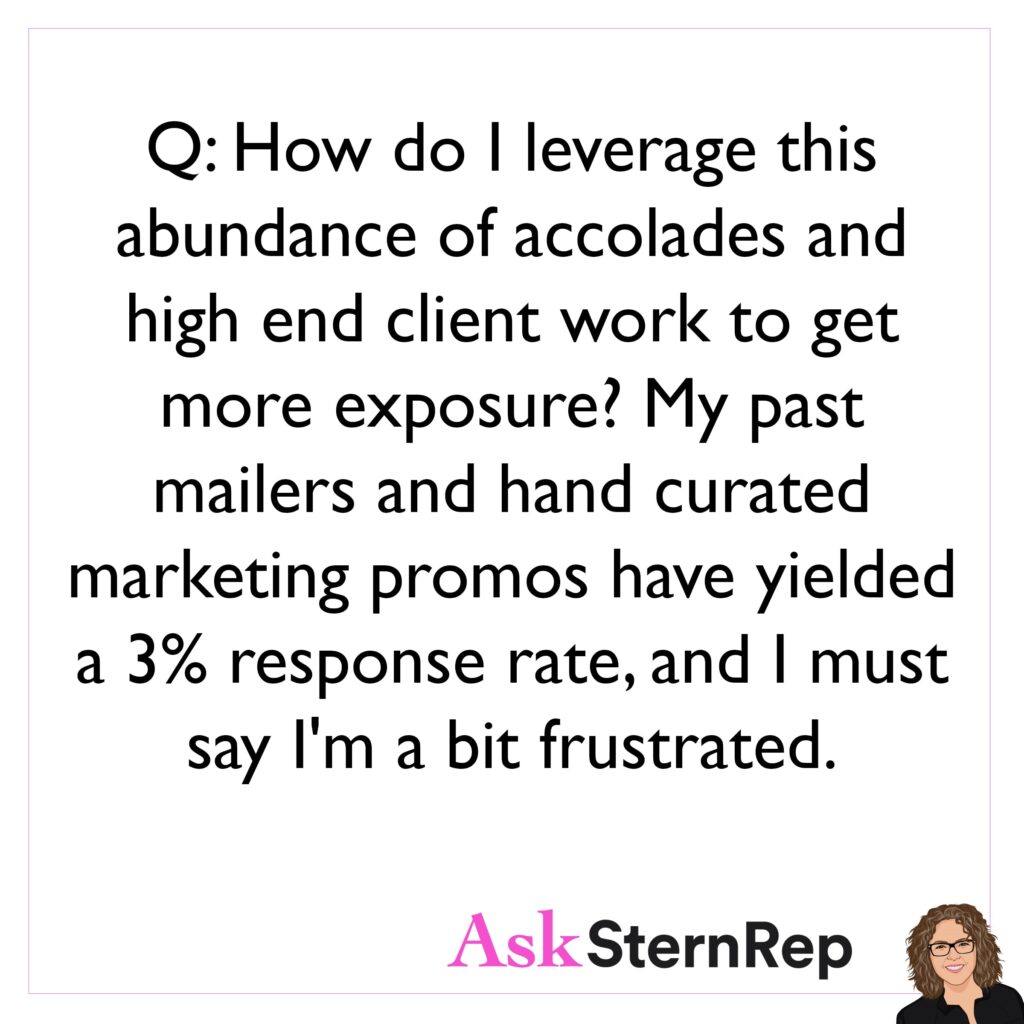
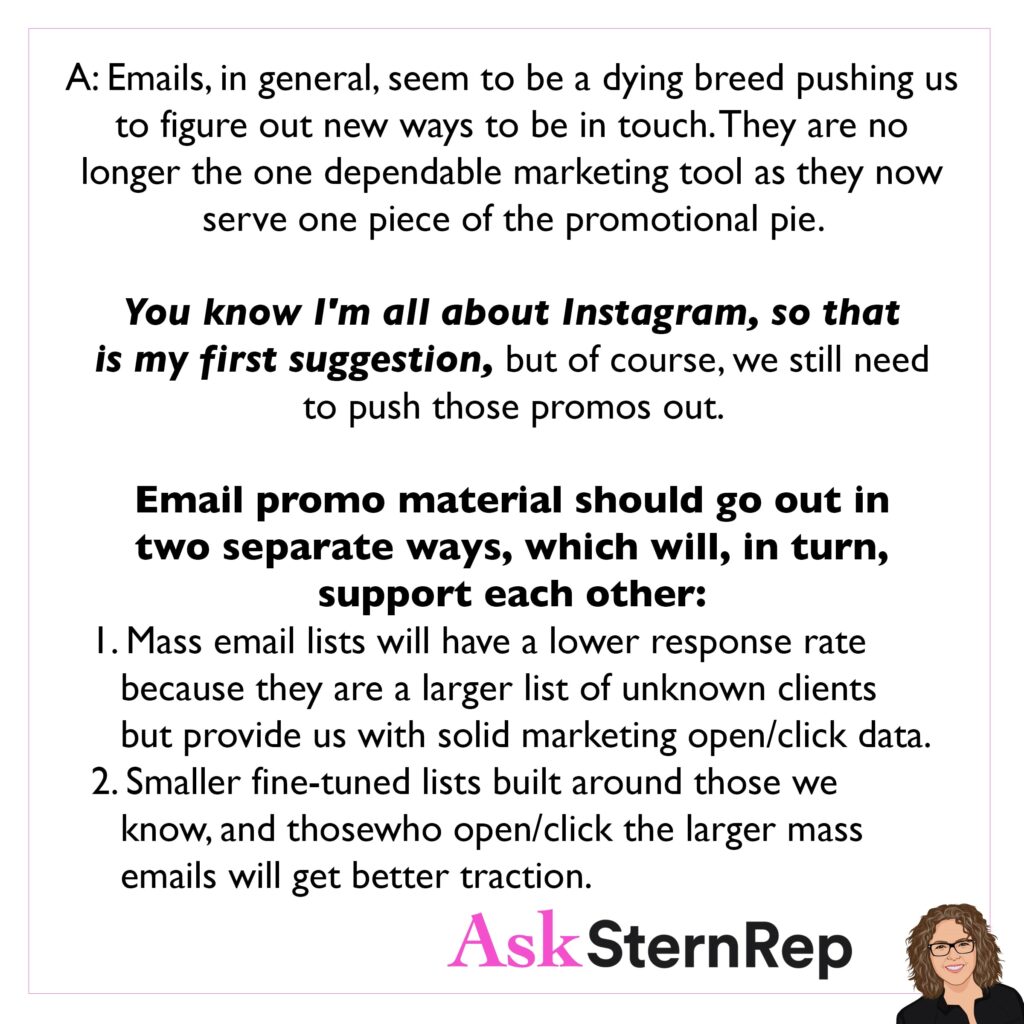
Q:
How do I leverage this abundance of accolades and high end client work to get more exposure? My past mailers and hand curated marketing promos have yielded a 3% response rate, and I must say I’m a bit frustrated.
A:
Emails, in general, seem to be a dying breed pushing us to figure out new ways to be in touch. They are no longer the one dependable marketing tool as they now serve one piece of the promotional pie.
You know I’m all about Instagram, so that is my first suggestion, but of course, we still need to push those promos out.
Email promo material should go out in two separate ways, which will, in turn, support each other:
- Mass email lists will have a lower response rate because they are a larger list of unknown clients but provide us with solid marketing open/click data.
- Smaller fine-tuned lists built around those we know, and those who open/click the larger mass emails will get better traction.
Cinematographers vs Photographers
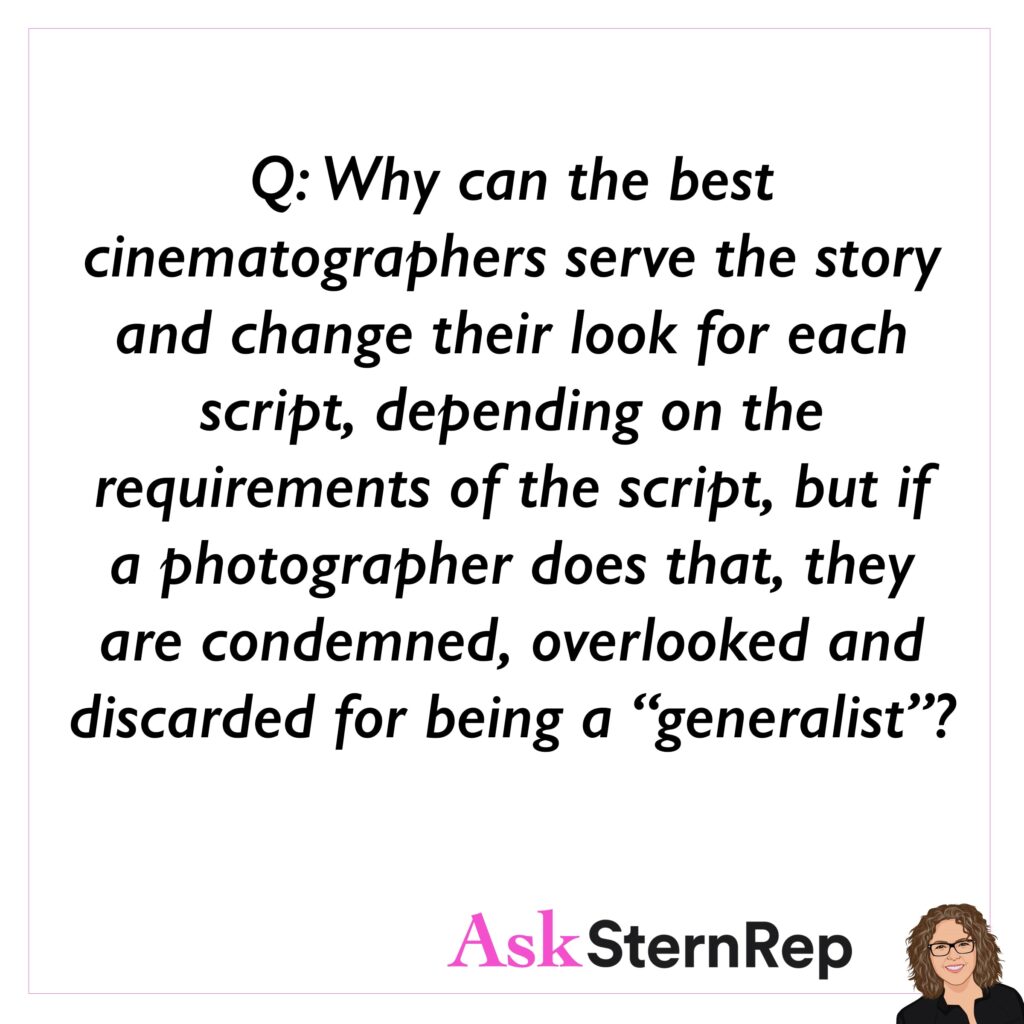
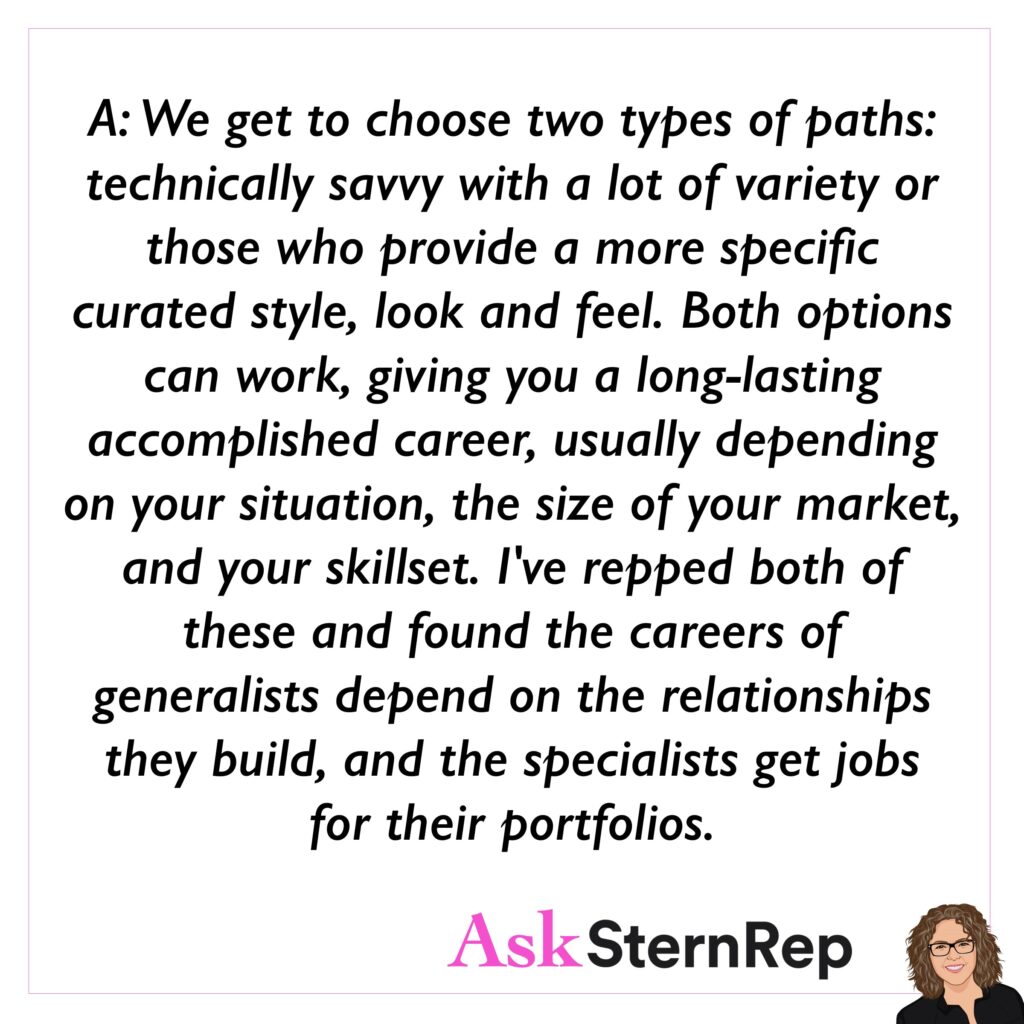
Q:
Why can the best cinematographers serve the story and change their look for each script, depending on the requirements of the script, but if a photographer does that, they are condemned, overlooked and discarded for being a “generalist?”
A:
We get to choose two types of paths: technically savvy with a lot of variety or those who provide a more specific curated style, look and feel. Both options can work, giving you a long-lasting accomplished career, usually depending on your situation, the size of your market, and your skillset. I’ve repped both of these and found the careers of generalists depend on the relationships they build, and the specialists get jobs for their portfolios.
